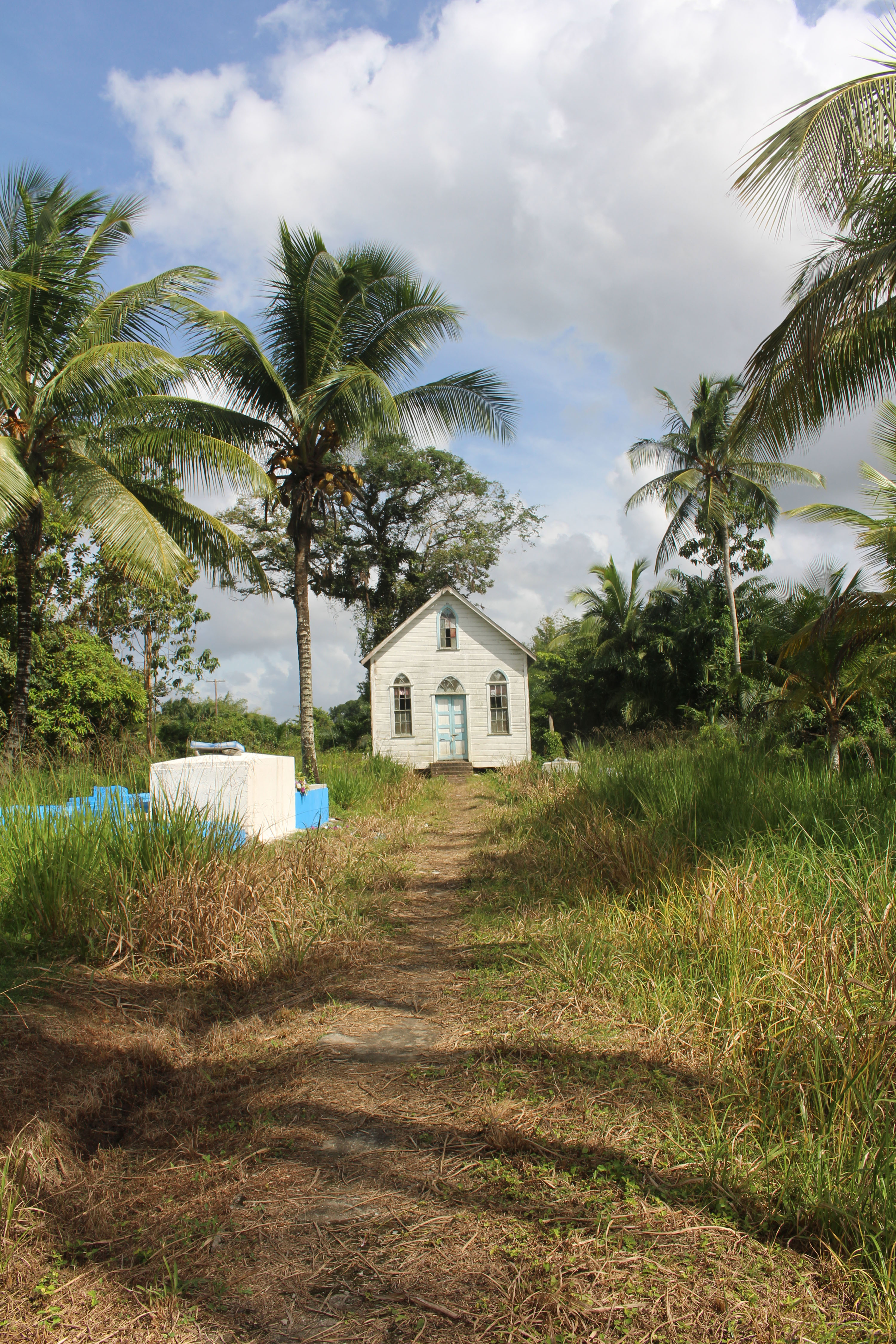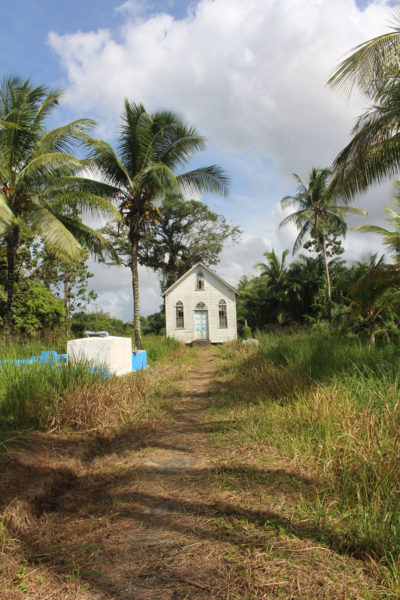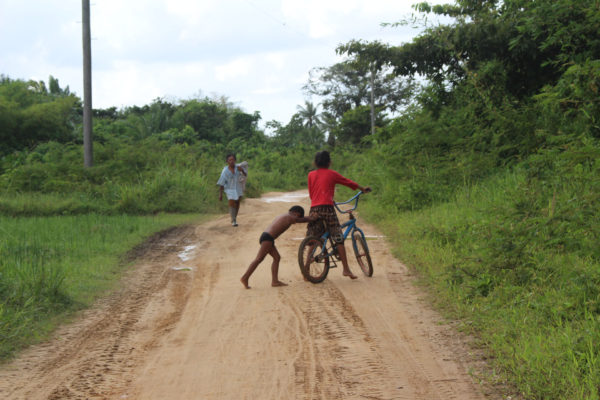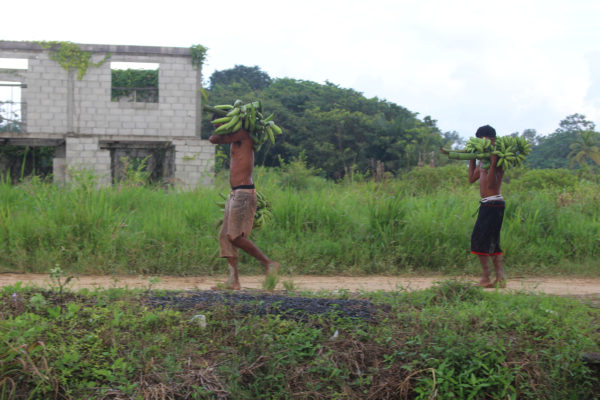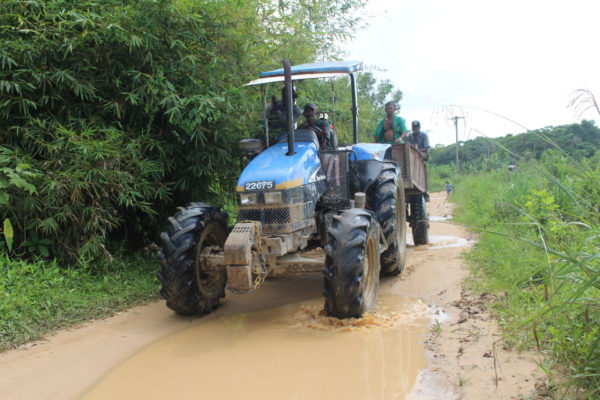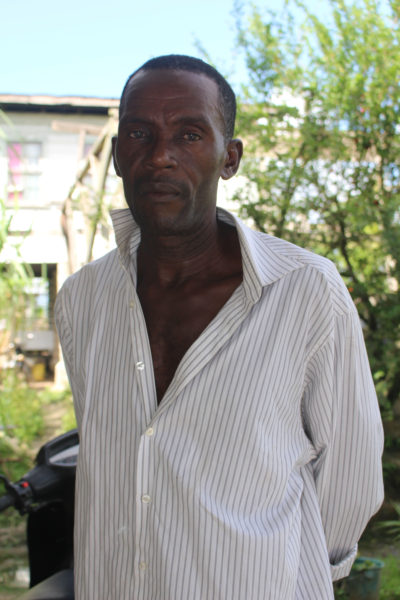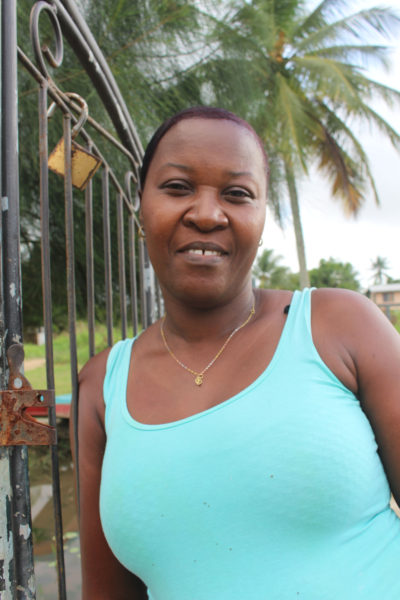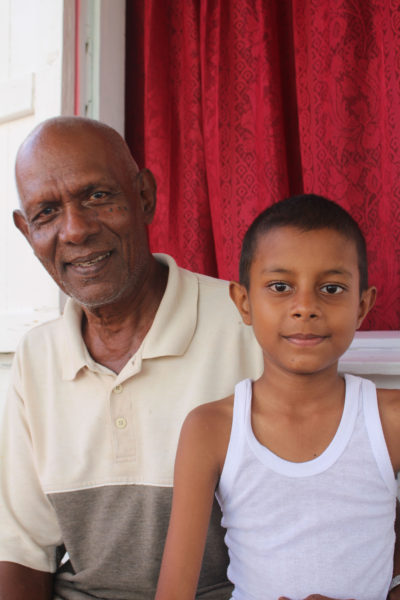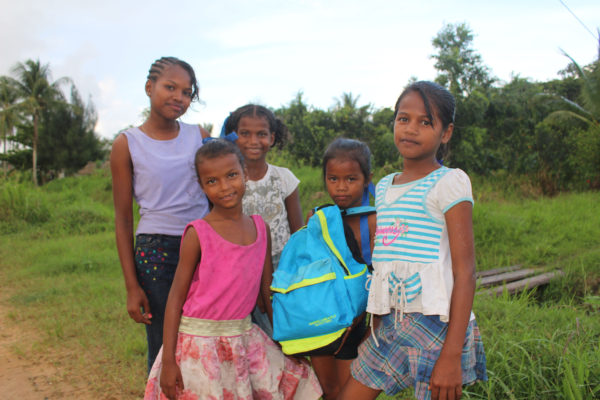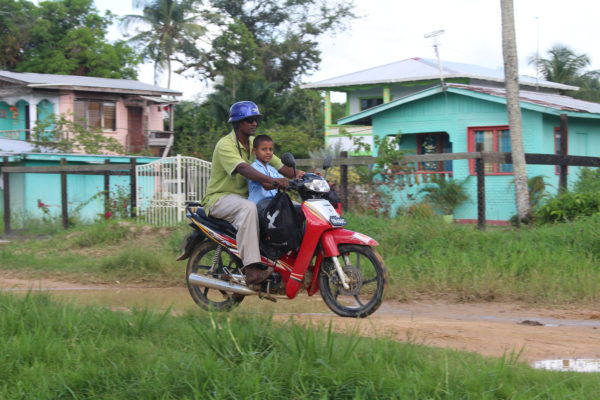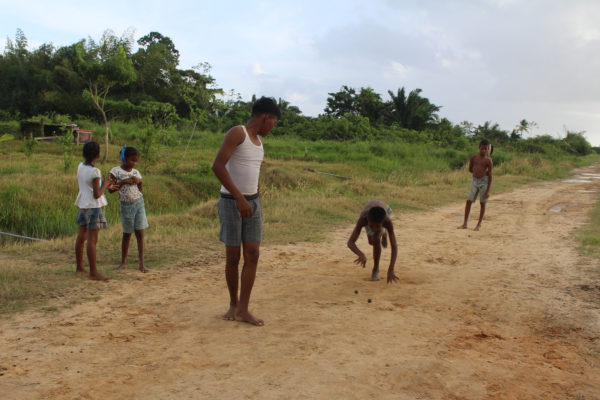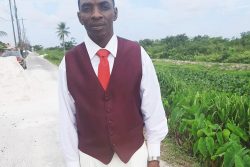What a name to give to a village, which according to some people is situated ‘behind God’s back’; a village that has no access to public transportation because it is almost four miles off the public road; a village with holes in its roads too big to call potholes and where nothing seems easy. But Free and Easy, once called Milmount, situated on the West Bank Demerara some 12 miles from Vreed-en-Hoop, has a story.
Pastor of the Vive-La-Force Assemblies of God Church,
Joseph Charles, was born at the George-town Public Hospital and raised in Free and Easy. He said his father told him a long time ago that the village was once called Milmount. “My father told me that the magistrate used to come to Vriesland [about 3 miles before Free and Easy] to keep court. However, the people in the village, whenever they had their problems instead of [travelling the 3 miles] to court, would settle their problems amongst themselves. The magistrate, a British man, heard of this and called the village Free and Easy, and the name left ever since,” Charles related.
The church at the head of the village stands testimony to the village once being called Milmount. The Milmount Congregational Church is rumoured to have been there close to 200 years and is probably the oldest landmark in the village. The name Milmount, though barely visible, can still be seen on a small shop which is no longer open for business.
Persons working or attending schools outside of the village have to find a way to get to the public road each day. Many walk the almost 4 miles out and then do the same later in the day. Some, according to Charles, are lucky enough to get a lift on a GuySuCo truck that might be passing through the village.
The closest hospital is the West Demerara Regional Hospital situated at Vreed-en-Hoop. Years ago when there wasn’t much of a road, pregnant women left the village a few weeks or a month before their due date, because some went into labour while on their way out, others while still in the village. Today, even though the roads are deplorable, they can now use their vehicles or call a taxi.
The people in Free and Easy are mostly farmers. Charles is one as well. He plants cash crops. He once planted cane but stopped sometime back. “We stop planting sugar cane. We were phasing out two years ago; it wasn’t feasible. We’d spend money to get the work done and wouldn’t make a profit. As a matter of fact sometimes we don’t even make back the money we put in, so we knew it was coming to this. At present I plant corn, cucumber, pumpkin and squash,” Charles said.
His brother, a farmer as well, who also lives in the village, drives around on Thursdays selling his produce and would take Charles’s as well; he sells in Free and Easy, but mostly in other close by villages.
What he likes about his village, Charles said, is that it “has a reasonable amount of Christian atmosphere so just about everyone is brotherly or neighbourly with each other.
“The area is a reasonably good area for farming and a nice place to bring up our children; to keep them away from the fast life.
“Also being that it’s in the countryside, we have lots of fruits, so fruits are given away most of the time instead of being sold.”
However, the downside, he said, is the road. He had thought that by now they would have had properly paved roads.
“My father,” he added, “lived here for nearly 100 years. He was 98 when he died [last year]. He was rather fortunate to see the village upgraded to potable water and electricity.
“The road is now sand and loam but when it wasn’t so we had to walk barefoot. It is my hope for us to have a better road. Grocery trucks refuse to come into our village; we have to go to the next village to get groceries [about a mile away]. If we have our roads then we can have our customers coming in to buy from us instead of us going out to sell.
“…West Bank Demerara is still yet to be explored. It would be a great day when we can have a highway running through the village all the way to Wismar, Linden. You call these villages, depressed villages and I have to say it’s because of Jesus or we’d be suffering from pressure or going mad.”
Charles noted though that the village has some exceptional young people who are “very respectful”. Though not all related they still refer to the older ones as auntie and uncle. He said that while some of them are farmers or have gone to work in the “gold bush,” there are others who are teaching or pursuing degrees at the University of Guyana.
Basil Seeram, Charles’s neighbour and one of the oldest residents in the village at 72 is also a pastor at the Church of Christ, the second of the two churches in the village. He said that about 30 persons from the village attend his church.
When he was 13 years old, Seeram moved with his parents and siblings from Vive la Force to Free and Easy. Between these two villages is another called Potosi, an empty stretch of nothing but trees on one side, the Demerara River behind it and fields of sugar cane on the other.
Seeram attended the Potosi Congregational School, which was once situated just at the border between Potosi and Vive la Force. Years after he left, he said, the school was destroyed in a fire. According to him, it was rumoured to have been the doing of the estate since cane was planted in its place soon after the fire.
When he first arrived in Free and Easy, Seeram said, “The place was nice to live in… There were plenty of fruit trees.”
In fact, the village is still full of them. I passed cherry and five finger (carambola) and fat pork (coco plum/paradise plum) trees along the way, all of which displayed their fruits nicely.
According to him, Free and Easy was bought by African slaves and two Chinese men, the Foos whose relatives live at Vriesland.
“Growing up here was nice. We used to do all the things boys used to, like swimming from eight to two and when we do come out, we eyes red, red,” he recalled.
At one time, Seetam was a cane farmer and he said that in the earlier years the village produced cane equivalent to 1,000 tonnes of sugar. The lowest the village has ever contributed was said to be 250 tonnes, and now, nothing.
The residents of Free and Easy, who now have access to potable water and electricity 24/7 only recently got these services. “We got lights in 2011 at Christmas time and water in 2015 at Christmas time,” Seeram said.
What makes Free and Easy stand out apart from its very respectable and free-spirited people, Seeram said is that, “It’s a good place to live. If you don’t have a job, or no form of income, you can come and live here and make it by farming.”
Concerning future developments, he added, “We got this bad road; we glad if they can fix it. Before this one we had to roll up we pants and walk. We’d also be glad if we can get a road like this to go into our farm. To get the produce from the farm out to the road is a terrible problem.”
Seeram said a health post would be great also since the nearest one is at Vive la Force and it would not only benefit his community but the other villages beyond as well.
Further into village, gospel music belted out from Trevorlene Seeram’s house. A former teacher at Vive la Force Primary, she moved from Canal Number Two with her parents when she was a child.
“It’s a beautiful atmosphere; it’s a fresh atmosphere, lacking pollution. It’s also a nice environment to bring up children; this way we don’t have people using indecent language or a lot of rum drinkers, rarely you’d find people who do,” she said.
The village, she revealed, has a building where persons can hold functions. In a section of this building there is a mill for persons wanting to make corn flour to sell or for personal use.
Trevorlene hopes that the village can soon have a recreational facility where the children and youths can meet instead of having to play on the road.
Almost at the end of the village a few boys were playing ‘Gam’ with their marbles made from the seed of the Kuru, a small oval-shaped fleshy/oily fruit that grows in bunches on a palm. The hard skin has to be peeled off to expose the flesh, which is enjoyed by both children and adults. The hard black seed, which resembles a large marble, is then used by children to play games. Some girls were looking on at the game and then suddenly they all scampered off the road, dashing into nearby yards as a man passed by with a cross-looking cow and her calf. Behind him, came two men with bunches of either plantains or bananas; then the children were back out again, having fun.
